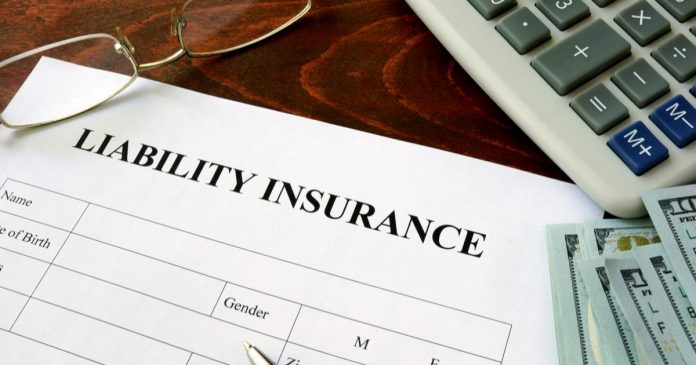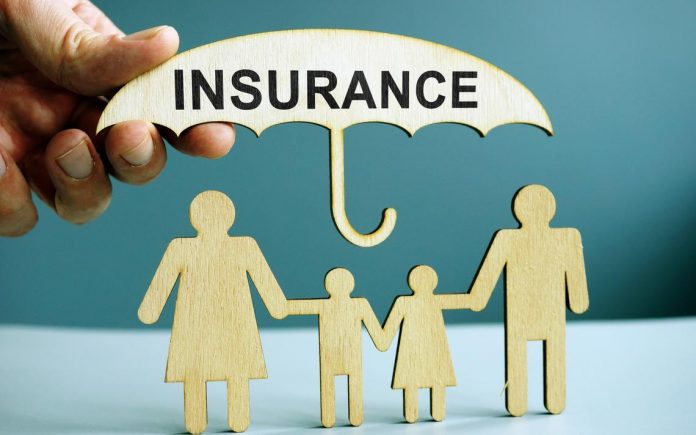All businesses have to shoulder risks, even before hiring their first employees, so it is vital to arrange the correct insurance. Just one disastrous incident or lawsuit could be sufficient to thwart a startup company, before it gets the opportunity to gain momentum. The three main types of business insurance are workers’ comp, property and liability. Based on your industry, you might want extra specialized coverage as well. Here’s a selection of commercial insurance plans that you should familiarize yourself with:
1) Workers’ Comp Insurance

Workers’ comp insurance provides benefits to your staff if they become ill or suffer harm due to their job. Even staff members who carry out ‘safe’ work can be injured if they slip and fall or develop health conditions like carpal tunnel syndrome. This could lead to an expensive lawsuit. The following benefits are designed to help:
-Pay for the majority of their salary, if they are unable to work
-Cover their healthcare fees
-Meet the cost of long-term care, such as physiotherapy
-Pay for a funeral, if they die because of an injury sustained at work
In the US, most businesses that employ people are legally obliged to have workers’ comp insurance. If you fail to adhere to your state’s rules, you could face penalties, fines and criminal prosecution. Typically, the laws governing workers’ compensation prevent employees from pursuing negligence lawsuits against employers for on-the-job injuries.
2) Professional Liability Insurance

Liability insurance protects businesses against negligence lawsuits, because of injuries resulting from errors or performance shortcomings. These types of insurance policies do not have a standardized format. All industries have their own specific circumstances, which are accounted for in bespoke policies written for businesses. The customized versions of liability cover include:
-Malpractice Insurance — This covers losses arising from third party injuries, when the conduct of a professional fails to meet acceptable standards. For instance, if a physician makes an error that other physicians in her field would have avoided, her patient could sue her. Malpractice policies will cover her defense fees and any settlement or judgment. As well as physicians, this type of coverage is available for accountants, dentists, architects and realtors, etc.
-E&O (Errors and Omissions) Insurance — This covers accidental shortcomings or errors that result in injuries to third parties. The incident has to be an accidental mistake, and not just bad judgment or an intentional act. For instance, E&O policies do cover claims related to a notary neglecting to complete notarizations correctly, or an insurer failing to process policy applications.
-Officers’ and Directors’ Liability Insurance — Typically, insurance of this kind is bought by nonprofit companies and corporations to pay for the cost of claims against officers and directors.
-Vehicle Insurance – Commercial vehicle policies cover any vans, cars, trailers and trucks used to run your company. This insurance will compensate you if a vehicle is stolen or damaged. You can file a claim if drivers cause injuries/damage to people or properties as well.
3) Property Insurance

Whether businesses lease or own their premises, they can’t afford to be without property insurance. This type of insurance reimburses the cost of signage, equipment, furniture and inventory that is lost due to theft, fire or storm. SmartBusinessInsurance offers policies that cover extremities, such as earthquakes and floods, which are rarely included on standard policies. It is possible to buy extra coverage for company property, including:
-Debris Removal Coverage — This insurance pays for the cost of debris removal following a windstorm, flood or fire, etc. For instance, your building is burnt to the ground by a fire. Prior to rebuilding anything, the remnants of the previous building need to be taken away. Standard property insurance only covers the rebuilding costs, not the debris removal.
-Machinery and Boiler Insurance — This coverage, which is often called ‘mechanical breakdown’ or ‘equipment breakdown’ insurance, covers you if your machinery, boilers or other equipment malfunction accidentally. Typically, this insurance policy pays for the repair costs and compensates you for loss of income, due to disruption. For instance, you could reclaim the cost of fire damaged computers with this coverage.
-Glass Coverage — This insurance reimburses the cost of smashed plate glass windows and shop windows.
-Builder’s Risk Coverage — This insures buildings during the period of their construction. For instance, builder’s risk insurance covers losses if your partially built apartment block is destroyed by a windstorm.
-Business Interruption Coverage — This insures you for costs and loss of income related to damaged property. For instance, if you have to shut your business for a few months due to a fire, this coverage will pay for rents, taxes, wages and net income that you would have made otherwise, over the three-month duration.
-Inland Marine Coverage — This insures property belonging to others on your premises and property in transit. For instance, this policy would cover a customer’s clothes that were fire damaged at your dry-cleaning company.

-Tenant’s Coverage — Tenants are required to hold certain insurance policies under many commercial leases. Renters’ commercial policies cover damage to upgrades you make to the rental premises, and building damage caused by employee negligence.
-Law or Ordinance Insurance — This insures you for the expenses linked to demolishing and rebuilding to regulation, if your property has been partly destroyed (typically fifty percent). For instance, your 150-year-old three storey building has two of its stories and basement destroyed by a flood. Because over half the building needs to be reconstructed, a local ordinance rules that the property must be demolished, then rebuilt in accordance with building regulations. Standard property insurance only covers the value of replacement – not any upgrades.
-Fidelity Bonds – Bond companies cover losses resulting from the theft of money and property belonging to a business by bonded employees.
-Criminal Insurance — This covers burglary, robbery and theft of securities, money, fixtures and stock from outsiders and staff members.
Final Thoughts

If you run a startup, the right type of insurance will get you off on a good footing, when you first open your doors. For seasoned entrepreneurs this is important as well, because — based on your sector and coverage – policy requirements might alter as time passes. To ensure legal compliance, you can consult an insurance representative. They will assist you in crafting a policy that suits your budget and needs.









